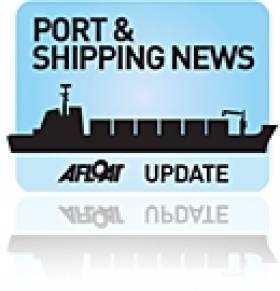Displaying items by tag: shipgenerated waste
Reporting Inadequate Facilities for Handing Ship-Generated Waste
The Department of Transport's latest marine notice lays out the format for reporting inadequate harbour facilities for handling ship-generated waste.
Shipping companies depend on good standards at receiving ports and harbours in order to comply with the relevant EU directive. But the notice outlines that improvement of port facilities' waste handling is partly dependent on users reporting any inadequacies.
The notice includes the International Maritime Organization's standard format for reporting unsatisfactory port reception facilities.
For all ships, reports should be sent to the relevant port authority as well as the Ship-Source Pollution Prevention Section of the Department of Transport. Non-Irish flagged ships in Irish ports should also send any reports to the ship's flag state.
A PDF of Marine Notice No 17 of 2011 can be viewed/downloaded HERE.
























































